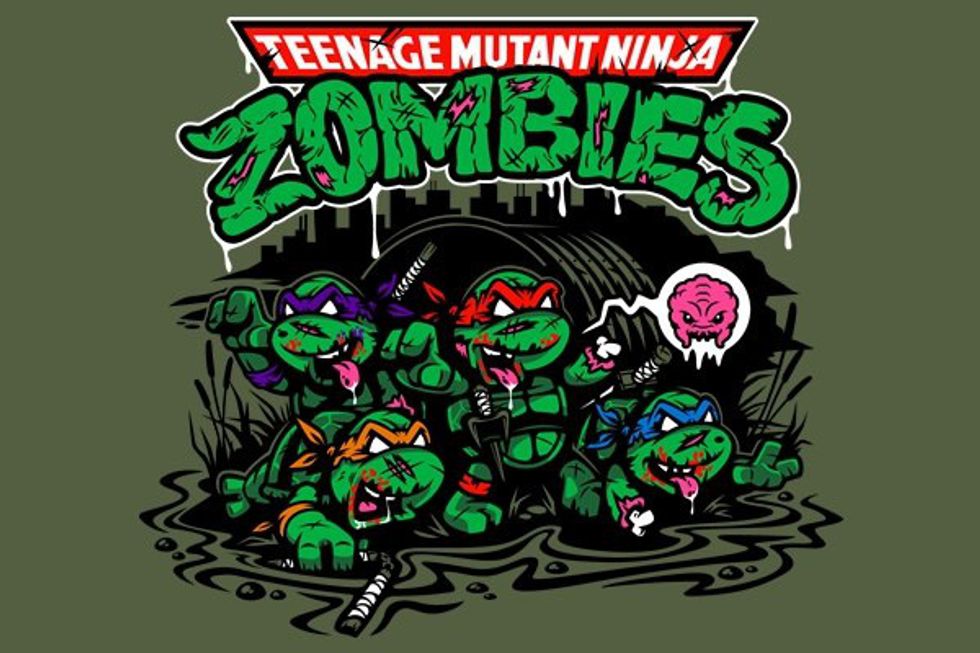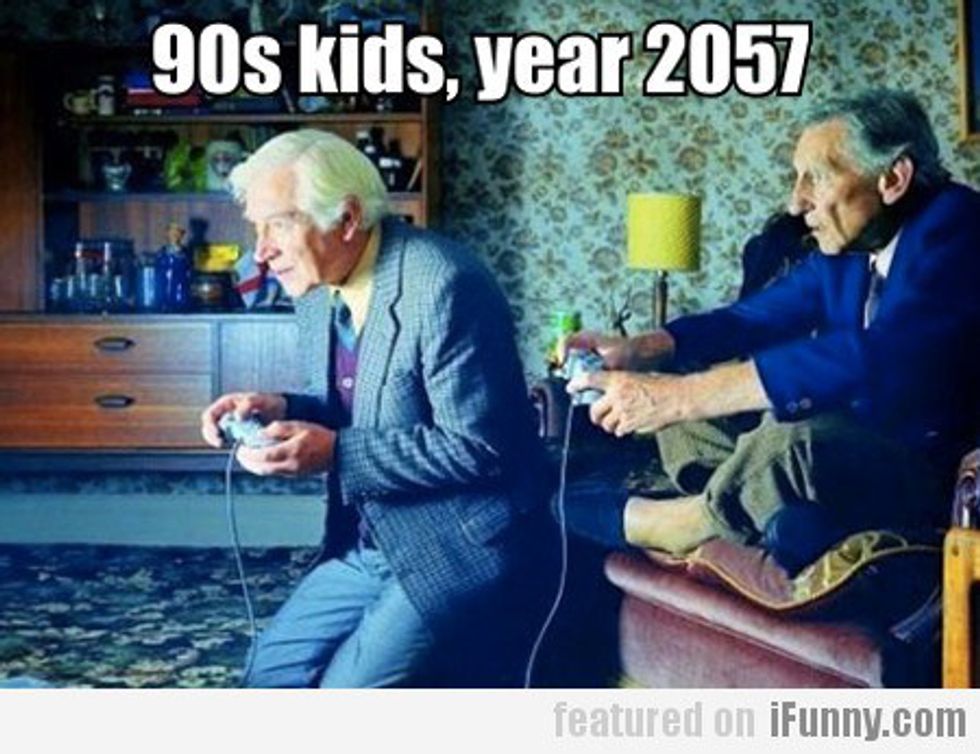Right now I’m wearing a shirt depicting the Teenage Mutant Ninja Turtles as bloodied undead, missing hands (paws?) and coming for Krang...an anthropomorphic brain. I am twenty-two years old. I had to stop this morning and contemplate whether I was so shameless as to wear such a shirt at my age in public. Of course, I gave in, but the surprising part is that I actually received compliments on my adolescent fashion choices. I’ve debated donating or pitching the bulk of my IP (That’s pseudo-smart Internet speak for “Intellectual Property,” I think.) shirts. As someone who generally avoids name-brand clothing, I’ve recently come to the conclusion that an advertisement is an advertisement whether you so happen to like it or not. (Although those Thai life insurance commercials are more heavy-hitting than most feature-lengths today.) The thing is, I grew up watching the original TMNT movie (It was one of the first DVDs I owned.) as well as Night of the Living Dead, amongst other things. How could I betray my zombie fandom (which does not extend into the subgenre’s current reincarnation) when Night of the Living Dead is such an inspiration for me as a low-budget filmmaker? When I walk past a cornyToy Story t-shirt, what else am I supposed to do, but buy it? What would Woody do? And I can’t act like passing on the David Bowie shirts on sale at FYE doesn’t feel like a direct offense to his mortality. It’s a childish guilt complex I’ve developed ever since my name was punched onto a Debit card.
And that’s the catch: It’s childish. Who are advertisements really made for? Why do companies prefer PG-13 to R-rated movies? It’s because they want to tap into ‘dat child demographic. It’s all about kids throwing tantrums in the aisles over how they need the twenty dollar Captain America and the ten dollar Vision won’t do. The sad truth is that this control is on lease. Eventually children will grow up and graduate to bigger and more expensive desires, like homes or vehicles to travel to work in. Leave the tuxedo manufacturers and Vogue editors to worry about that. The Hollywood entertainment industry goes for them young. At some point, someone must have asked, “Yes, but how can we make more money? How can we take advantage of the young and old at once?” The answer was to reboot, reintroduce titles all but forgotten back into the marketplace. Now, not only are children first discovering these properties rushing out to see them, but their parents are as well. So, today we have adult men and women shopping for groceries in t-shirts emblazoned with the Jurassic Park logo. We’re all paying for familiar faces. Let’s be real, did Pokemon Go become such a phenomenon for its gameplay? Was Star Wars continued for the integrity of the story? What does appear to be original today could just as easily be written off as nostalgia pieces, scrapbooks of articles clipped from the past. Who could have thought that Stranger Things would appeal to a generation (or two) raised on the two Stephens (King and Spielberg, duh)? I once read on a forum that artists look to the future; hacks look to the past. I would take that a step forward and propose that it’s not businessmen tapping into the past. The new new is old.
Ultimately, is it bad? Is it some economic conspiracy whipped-up in a cauldron by the affiliates of Patrick Bateman? Yeah, probably. I think so. I believe that it’s taking advantage of audiences and robs them of artistic innovation, but it also makes people happy. If some thirty year old dude wants to wear a Deadpool hat, he has every right to. We live in a time where individuality is becoming more and more important, and yet we find identity in material possessions. It’s insecurity manifest, an emotional investment-cum-financial. Nostalgia has become the new drug. It’s a dependency that we require, the new orgasm. We burn our paychecks in order to have it; we define ourselves through which poisons we had chosen. It’s commercial indoctrination and the realization of the child’s innocence in the stranglehold of corporate greed. It’s something so beyond criticism that even if it needed to be pointed out, I don’t think it would change a single mind. I can type up whatever I want, but I’m still the loser in a Teenage Mutant Ninja Zombie t-shirt and a dozen more of its kind in my drawer.










 The minimum wage is not a living wage.
StableDiffusion
The minimum wage is not a living wage.
StableDiffusion
 influential nations
StableDiffusion
influential nations
StableDiffusion












